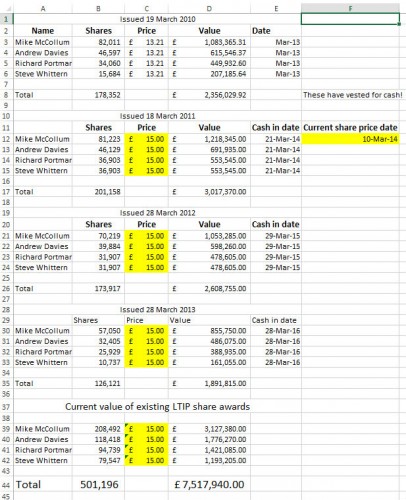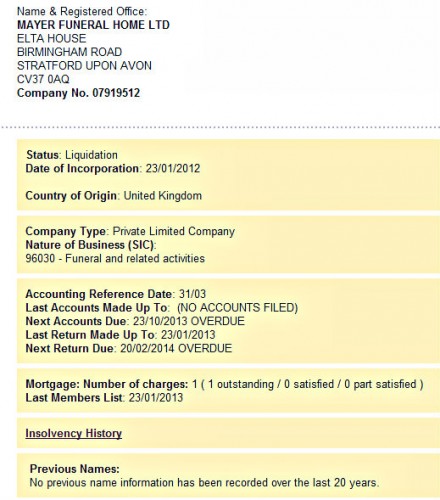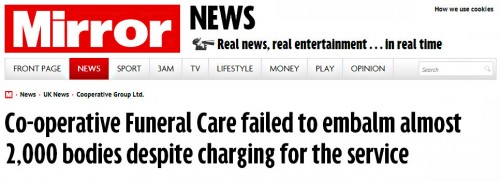If there’s one thing that really vexes people in the funerals business it’s the question of who gets paid for what – and how much.
Take the business of conducting a funeral. In England, when C of E clergy moved their fee up to £160 + travel, lots of people howled. Everyone in England is entitled to a C of E funeral whether they attend church or not. The C of E is the state church. Vicars are paid wages to lead parish worship and attend to pastoral duties. How therefore can they define a funeral as an extra? Well, up in Scotland, where the Church of Scotland is the national church, not the state church, ministers make no charge for conducting a funeral. But the C of S is running out of money and looks like not being able to afford to do this for much longer. Conducting funerals for nothing is a luxury it cannot afford. Every altruistic enterprise needs revenue streams.
In the case of secular celebrants, the contract with clients is apparently clearer cut. They sell their skills for a price the market will stand. Theirs is unmistakably a commercial service. A good many celebrants are thereby able to generate a reasonable income by knocking out up to 10 or so funerals a week, working from a template with slot-in readings, etc — a liturgy by any other name, nothing wrong with that — comprising also a treatment of the life of the person who’s died which probably goes little deeper than rapidly gathered facts + dates + a few notable attributes.
Alongside these fast-food merchants are the altruistic adherents of the Slow Funerals movement for whom the creation of a funeral is an evolving process requiring much talk, much listening, much thought and, as a consequence, a treatment of the life lived which calls for a great deal of ‘frightfully difficult literary labour’. The result is a funeral which goes deeper and is more personal. A better funeral, in other words. But to work in this way, and conduct a very few funerals a week, requires either acceptance of poverty or the existence of another form of income, whether in the shape of a pension, an inherited fortune or a supportive partner. In commercial terms, it is an uneconomic way of working.
So: how much of the time put in by these Slow Funerals people do we count as being given for nothing? What part of their work, in other words, counts as voluntary work?
This question doesn’t apply only to celebrants. There are undertakers, too, who believe in Slow Funerals, and who may also believe in doing their best for those who struggle to find the funds for a funeral. They generate a great deal of social capital but many of them don’t bank a lot of cash. It’s the same with every vocational occupation, of course, the difference being that most vocations we can think of pay at a level that makes going the extra mile an affordable luxury. Many of our most caring undertakers, by contrast, live close to the breadline. Many, but by no means all.
Funeral shoppers have always had a difficulty with acknowledging and accepting that a funeral is a consumer product just the same as any other. That’s changing. Two factors above all are responsible. First, it’s a product which 1 in 5 people struggle to afford. Second, it’s a product whose experiential value is being increasingly questioned.
Did I say two? Add a third. Until recent years, the state enabled everyone to buy a decent one-of-those, what-everyone-has, funeral. Any notion that the value of the Social Fund Funeral Payment will be restored in this, the era of the benefits cap, looks delusional. So something’s got to give, and that something’s almost certainly the way we do it now.
The time-consuming part of an undertaker’s and a celebrant’s work, which calls for high expertise and wisdom, is the emotional support of the bereaved, helping them come to terms with, and make some sense of, what has happened. The easy bit for an undertaker is the care of the person who’s died. Any good celebrant will tell you that only a small proportion of the value of their work can be judged by the script they read at the funeral.
You’ll not find the pastoral element of the work itemised and charged for at an hourly rate on any bill submitted by an undertaker or any celebrant. You can’t place a commercial value on that, you can’t charge people for kindness. If you’re an undertaker, it’s the care of the body that has to cover it. If you’re a celebrant, the rate for a template funeral. Reputation will help, too, of course. You can put your prices up a notch if everyone agrees you’re worth it — but you might not want to do that if it means making you unaffordable to people of slender means.
Whatever you think of all that, the fact remains that the what-everyone-has funeral, reckoned expensive by those who can afford one, is now out of reach to an increasingly large segment of the population. We need something more affordable.
A conference held at the International Longevity Centre in February this year proposed a cheaper way forward that we’ve discussed on this blog: There is considerable potential to review the funeral service itself, separating the ritual from the committal. This could enable people to have more time to consider the ritual aspects and costs of the service, separate from the more functional aspect of managing the remains. When they say committal, they mean disposal, of course. Do read the report, it’s good.
Separate the disposal from the ritual. Take the corpse out of the funeral. Bring in cheaper cremation and the re-use of graves, and the costs begin to tumble. If, that is, the resulting ritual is reckoned timely and satisfying. Not everyone will be persuaded, of course.
Kate Woodthorpe at the University of Bath takes it a step further and proposes that there may be roles for “public, private and third sectors in both preparing individuals and their families pre-death, and when bereaved.”
That’s interesting. Third sector. Volunteers to share the work of listening and supporting bereaved people. That would redefine the roles of undertakers and ritualists. But is it really a viable alternative to the way we do things now?



